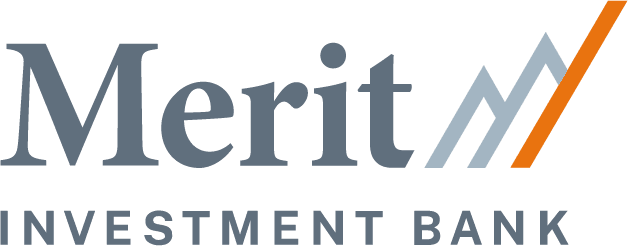Why a Creative Exit Deal Structure, Especially a Seller Note, May Be a Smart Move for Sellers
For most entrepreneurs, the dream of selling their business usually looks something like this:
“I get a call from a massive multinational company that offers me all cash, well above my expectations, and we close with minimal due diligence in record time.”
While this sounds like a great deal, in today’s market, this “dream scenario” is more of a fantasy than reality.
If you’re a seller looking for liquidity in today’s volatile markets, the truth is you need to be proactive, flexible, and open to creative deal structures. Although valuations for middle-market businesses are holding steady, the structure of most deals has changed. To ensure a smooth transition and maximize the value of your business, it’s crucial to explore different deal structures.
Let’s dive into the four most common deal structures you’ll encounter in today’s M&A transactions:
1. Cash Deals: The Ideal, but Rare Structure

Cash deals remain the ideal for sellers, where you receive the entire purchase price upfront. “Cash is king” is a popular saying for a reason, and the certainty it provides is appealing. However, this structure is becoming rare in today’s economic landscape. While cash is still a critical component, it’s often accompanied by additional structural elements like escrow accounts, representations, warranties, or holdbacks—which means you may not receive the full amount immediately.
When Cash is King
- Certainty: No deferred payments, and no additional risk.
- Less complexity: Shorter closing times and fewer contingencies.
However, in uncertain market conditions, expect fewer all-cash offers as buyers may look to mitigate their financial exposure.
2. Rolled Equity: Aligned Interests and Long-Term Participation
Rolled equity occurs when the seller reinvests a portion of the sale proceeds into the acquiring company. This ensures continued alignment of interests between the seller and the acquirer. The key benefits of rolled equity are that it allows the seller to stay involved with the company and share in its future growth, often with preference at the next exit event.
Risks and Rewards of Rolled Equity
- Increased exposure: You still have a stake in the business, which can be both rewarding and risky.
- Continued influence: You may have a voice in strategic decisions, depending on your equity position.
However, be sure to assess the risk associated with holding equity post-sale, especially if the acquiring company’s performance deviates from expectations.
3. Earn-Outs: Bridging Valuation Gaps in Uncertain Times
Earn-outs are a form of contingent compensation that bridges the gap between buyer and seller valuations, especially in uncertain or volatile markets. Typically based on future performance metrics such as revenue, earnings, or customer retention, an earn-out allows the seller to receive additional compensation if the company meets specific goals after the sale.
Why Earn-Outs Matter
- Performance-based: Earn-outs allow sellers to get paid more based on the company’s future success.
- Flexibility: Sellers and buyers can structure earn-outs to address specific concerns, like future growth or market stability.
However, it’s essential to consider how these structures can create post-sale stress, as the seller may have less control over company performance after the deal closes.
4. Seller Promissory Notes: A Creative Way to Close Deals
Seller promissory notes are a type of financing where the seller agrees to receive part of the purchase price in the form of deferred payments. This can be an attractive option when buyers face difficulties obtaining traditional financing due to high interest rates or other market constraints. Seller notes are becoming more common in today’s tight credit markets, offering sellers a creative exit option.

The Pros and Cons of Seller Notes
Pros:
- Deal completion: A seller note can make the difference between a deal closing or falling through, especially if the buyer is cash-constrained.
- Negotiation leverage: Offering seller notes can boost your bargaining power. As the seller, you can effectively say, “Here’s the price, but here are my terms.”
- Higher return potential: Given the current market volatility, a seller note may offer higher returns than you could earn elsewhere.
- Creditor rights: As a note holder, you’re positioned as a creditor, which can give you some leverage in case the buyer faces financial troubles.
Cons:
- Subordination risks: Seller notes are usually subordinated to the senior debt in the deal, meaning if things go wrong, you’re lower in the liquidation priority.
- Debt risk: Deals with heavy reliance on debt (rather than equity) could increase default risk. As a seller, you may not be comfortable with this, especially in uncertain markets.
- Less control: Unlike equity, a seller note does not give you any say in how the company is run post-sale. This can be a drawback if you still want to stay involved in strategic decisions.
Strategic Thinking: Is a Seller Note Right for You?
Before agreeing to a seller note, take a moment to evaluate your risk tolerance and financial objectives. While the promise of receiving deferred payments may seem appealing, it requires you to remain financially tied to the buyer and the company. This option might be ideal if you’re looking for ongoing income or are willing to take on more risk for the potential of higher returns.
Reassessing the Dream: What’s Your Real Goal?
While the fantasy of an all-cash deal might sound attractive, it’s important to remember that liquidity, diversification, and reducing risk may be just as important—if not more—than receiving a full cash payout. This realization often leads to more thoughtful, creative solutions, such as seller notes or equity reinvestments, that help achieve your true exit goals.
The key takeaway: Be open to flexible deal structures and weigh their pros and cons carefully. As the market evolves, so should your exit strategy.
Merit Investment Bank can guide you through this process, helping you develop a creative exit plan tailored to your goals. Ready to discuss how seller financing could help you close a successful deal? Reach out today.
Talk to the Experts at Merit Investment Bank
J. Craig Dickens
Chairman
Craig.Dickens@MeritInvestmentBank.com
253-370-8893
Securities offered through Finalis Securities LLC Member FINRA/SIPC. Merit Investment Bank and Finalis Securities LLC are separate, unaffiliated entities.

0 Comments